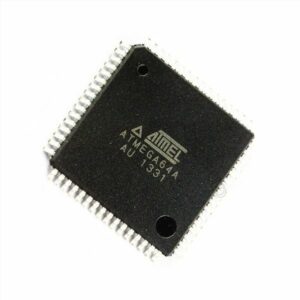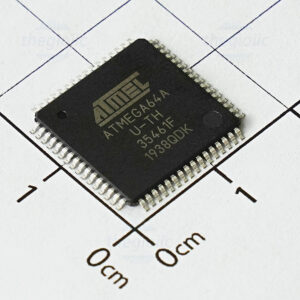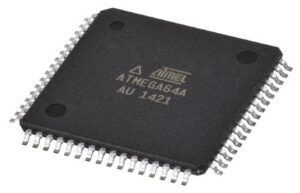AVR MCU ATmega64A Flash Program Decryption is a process starts from breaking atmega64a microcontroller fuse bit and recover avr atmel atmega64a mcu embedded firmware from flash and eeprom memory;

Port F serves as the analog inputs to the A/D Converter.
Port F also serves as an 8-bit bi-directional I/O port, if the A/D Converter is not used. Port pins can provide internal pull-up resistors (selected for each bit). The Port F output buffers have symmetrical drive characteristics with both high sink and source capability when readout microcontroller atmega64a heximal file. As inputs, Port F pins that are externally pulled low will source current if the pull-up resistors are activated.

The Port F pins are tri-stated when a reset condition becomes active, even if the clock is not running. If the JTAG interface is enabled, the pull-up resistors on pins PF7(TDI), PF5(TMS), and PF4(TCK) will be activated even if a reset occurs.
Port G is a 6-bit bi-directional I/O port with internal pull-up resistors (selected for each bit). The Port G output buffers have symmetrical drive characteristics with both high sink and source capability to read out atmega64a1 microcontroller heximal. As inputs, Port G pins that are externally pulled low will source current if the pull-up resistors are activated. The Port G pins are tri-stated when a reset condition becomes active, even if the clock is not running.


